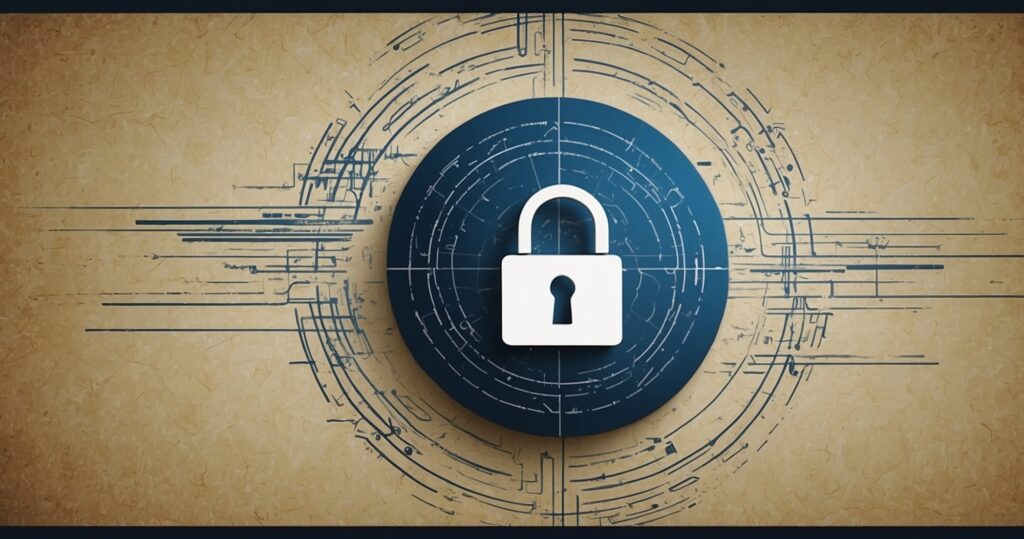Passwords are your first line of defence against attackers. But you must shore up that defence using strong and complex passwords. You also need to manage your passwords and avoid common mistakes like repeating the same password for different accounts. Doing all this isn’t easy.
But if you don’t do it at all, you’re making yourself vulnerable to potential cyber-attacks. Yet, you likely don’t have the time to create 100 unique passwords for your entire business, either.
So what’s the solution?
You need a password manager to manage your company’s passwords for you. A good password manager will create and securely store all your passwords for you.
Keep reading to learn how a password manager will improve your cyber security.
The Problem With Passwords
Over 80% of data breaches are caused by stolen or breached passwords. Hackers steal passwords and then either use them to steal your data or sell them to someone who will.
This happens because most people use easy-to-guess passwords, like their mother’s maiden name. Another huge vulnerability is that most people use the same password for multiple accounts. So when a hacker guesses one password, they can access all your accounts.
Despite the problems with passwords, you can’t get rid of them. You need passwords to secure your accounts. So, the solution is to find a way to securely share passwords with your employees.
The best way for you to do this is by adopting a password manager for your organisation.
Why Use a Business Password Management App?
Password managers secure your entire organisation’s passwords. A password management application is a centralised platform to store your entire business’s passwords.
You can store your organisation’s passwords there, and your team members can retrieve them when needed. Professional password managers even come with special features like separating personal and professional passwords.
If you’re still not convinced, these are the data security benefits of getting a password manager.
1. Centralised Password Management
A password manager stores all your organisation’s passwords on a single platform instead of your employees storing them individually on their devices or recalling them by memory.
So your team members will never lose passwords. Your management will always have access to the entire organisation’s passwords in a secured encrypted vault.
You won’t have to worry about potentially losing passwords or having to rest them in a time-consuming way. Your password manager lets you centrally control all your passwords.
Another advantage is that management can use the password manager to ensure no repetitive or weak passwords are used. That way, your entire organisation will use secure passwords.
Centralising passwords also means sharing passwords with new team members is easier. So, this centralisation vastly improves your data security.
2. End-to-End Encryption
Password managers use the most advanced encryption techniques to protect sensitive data. Encryption works by scrambling your passwords into unreadable text.
So, only you receive access to the decrypted version of the passwords when you access them via the password manager. The benefit of encryption is that even if hackers access your passwords, they won’t be able to use them.
The encryption makes it almost impossible for hackers to access your sensitive information.
Encryption improves security especially when transmitting passwords to new employees. Thus, it maximises the confidentiality of your passwords.
Encrypting your passwords alone is one of the best security measures to protect them and prevent unauthorised access.
3. Secure Password Sharing Features
Managers share passwords with team members all the time. This transmission process is often extremely vulnerable because managers often text team members’ passwords. Hackers often target business communication channels for this reason.
You can avoid this problem entirely by using a password manager.
Your managers can provide your employees with the credentials needed for an account without showing them the actual password. That way, your team gets the access they need, and there’s minimal chance of your passwords being accessed by a hacker.
This feature massively improves your organisation’s security since sharing passwords with employees is so common. You almost completely remove the vulnerability by sharing credentials without revealing the password.
4. Multi-Factor Authentication (MFA)
MFA involves additional security checks after you input a password to access an account. These extra security checks could be a timed code sent to a team member’s phone or email. It could even be biometric verification, like a fingerprint sensor.
In any case, MFA massively increases the security of your system. Even if a hacker somehow accesses your password, which is already extremely unlikely, they’ll also need to bypass your MFA.
This is far more difficult to do since they’d have to access your phone or email or somehow provide your biometric information.
Most password managers come with MFA features. So you can implement it immediately after setting up your password manager. Adding MFA to your accounts will create an almost impenetrable defence against potential attackers.
5. Password Generation and Complexity
Most password managers even come with built-in password generators. You can use these to create long, complex passwords that are extremely difficult to guess. These passwords will typically be many characters, over 20, long and contain alphabets, numbers, and special characters at random.
These password generators always create more complex passwords than your team can create themselves. So, instead of burdening your team with creating 10 separate passwords for each work-related account, you can just have your password manager do it.
The best part is that there are no limits to how many passwords you generate.
Suppose you have a company of 10 employees with 10 passwords each. That’s 100 unique passwords total, assuming no password is used twice. Your password manager can create 100 unique passwords for you in seconds.
So, with a password manager, you’ll completely remove the need to reuse passwords or use weak and ineffective ones.
6. Audit Trails and Activity Monitoring
Most password managers offer monitoring and audit trail features. With these, you can track access history to all your workplace accounts. Your admins can track which employees accessed which password, when, and how long they remained active on an account.
The benefit of this monitoring is that you increase both transparency and accountability in your organisation. You won’t have to wonder who used what. You can simply use the password manager to track your team’s activities.
This type of monitoring is especially beneficial in case your organisation suffers a cyber breach. You can conduct an audit trail to discover where the breach occurred and how. That way, you can plug the vulnerability and prevent similar future breaches.
Another advantage is that you can instantly detect when a password gets breached. You’ll be notified when a new signup happens to one of your accounts.
Assuming your admins don’t recognise or expect anyone to sign into a particular account at the time, they can prevent access and investigate the origins of the attempt.
7. Secure Sharing with Third Parties
Depending on your industry, most businesses will have to share passwords with third-party collaborators or contractors for various purposes. These would normally involve the third party gaining limited access to your resources to complete their task.
When this happens, you need to be able to share this information securely. Similar to the issue with sharing passwords with team members, communicating passwords with third parties also represents a vulnerability.
Hackers could potentially access your chats with third-party entities and steal your passwords.
With password managers, you again eliminate this issue entirely. You can securely share passwords with a third-party entity with your password manager. Another benefit is that you can also track the third party’s use of your passwords with a password manager’s tracking features.
8. Improved Convenience and Productivity
Another benefit of password managers is that they make logging into accounts easier. Your team members won’t need to recall passwords themselves and potentially waste time repeatedly typing passwords.
Instead, they’ll just quickly provide their password manager with the right verification and instantly access their accounts. So minimal time and energy is wasted logging in.
An additional benefit of this improved convenience is that team members are far less likely to make mistakes that can cause security problems.
For example, without a password manager, a team member who’s forgotten a password texts a colleague asking for it. The colleague provides the password via text, but it gets intercepted by a hacker who then uses it to steal your data.
With a password manager, the above scenario can no longer happen. Logging into their accounts is a smooth and simple process for your employees.
Maybe you Could Use Some Help
Integrating a password manager into your business is one of the best ways to improve your digital security. A password manager generates and stores strong and complex passwords for you. That way, you get more time to focus on other important tasks.
That said, setting up a password manager isn’t always easy, especially if you have many employees with many accounts used by each one. You can always ask an IT-managed service provider (MSP) to set one up for you.
Click here to get a free consultation with PowerbITs, and we’ll figure out how to set up a password manager for your business.








